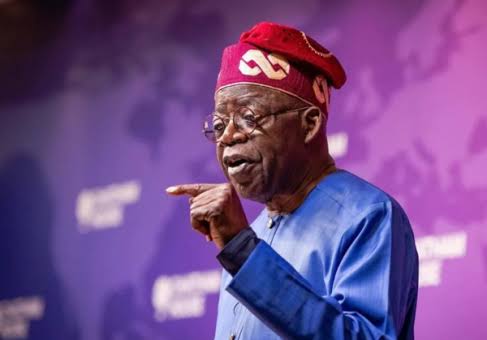Economists, finance experts, and business leaders have concurred that President Bola Ahmed Tinubu’s macroeconomic reforms have repositioned Nigeria as a stable and promising economic powerhouse. In various presentations yesterday, they highlighted how the administration’s bold decisions have reset the economy, yielding gains in growth, foreign exchange inflows, national reserves, foreign direct and portfolio investments, currency stability, and international credit ratings.

While acknowledging that these policies have restored investor confidence, the experts emphasized the need to build consumer confidence to ensure ordinary Nigerians feel the full benefits. They stressed that addressing public welfare is key to bridging the gap between economic stabilization and improved living conditions.
Dr. Muda Yusuf, Chief Executive Officer of the Centre for the Promotion of Private Enterprise (CPPE) and former Director General of the Lagos Chamber of Commerce and Industry (LCCI), described the reforms as a shift from uncertainty to a stable, investor-reassuring outlook. Speaking on Ray Power FM’s “Factfile” program, monitored in Lagos, Yusuf contextualized the reforms against the dire economic state in early 2023. He argued that without these tough measures, Nigeria’s situation would have deteriorated further, likening the economy to a critically ill patient requiring major surgery.

“I understand the pains and the anger,” Yusuf said. “But fixing a fundamentally broken system is challenging and painful. The administration inherited a near-collapse scenario—we’re talking net reserves under $5 billion for a nation of over 200 million people. Reforms were inevitable to ensure survival.”
Yusuf noted that the worst pains are now behind Nigeria, with signs of recovery emerging. “The situation in 2025 is better than 2024, and 2024 was an improvement over 2023,” he said. Businesses have regained stability, fostering faster growth that could enhance welfare. He pointed to corporate turnarounds: many firms that posted heavy losses in 2024 are now profitable, with some expatriate companies returning and new investors arriving.


Key indicators include net reserves rising above $20 billion and gross reserves hitting $43 billion, providing currency support. The exchange rate has stabilized below N1,500 to the dollar, down from peaks near N1,800 in 2024 and fears of N2,000 in 2023. Yusuf also praised the end of the burdensome fuel subsidy regime, which drained forex earnings and fueled corruption. “We were bleeding from subsidies and forex mismanagement. Now, fundamentals are improving, though welfare issues need urgent attention—like pain relief after surgery.”
Dr. Ayo Teriba, CEO of Economic Associates, echoed this optimism, stating the economy has exited the high-risk phase of the past two years and entered recovery. He cited the Central Bank of Nigeria’s (CBN) recent initiation of monetary easing as a signal of strengthening fundamentals. Inflation has declined in eight of the last nine months and could reach the government’s 15% target by December, bolstered by stable exchange rates and reserves over $43 billion.

“There’s no disconnect between easing and inflation trends—these are real improvements,” Teriba said. “Companies are profitable again, states are adjusting wages and creating jobs. Reserves jumping from under $10 billion in 2023 to over $43 billion stabilizes the naira and reduces prices.” He highlighted sectoral rebounds in telecoms, cement, pharmaceuticals, and banking, plus state-level initiatives like wage hikes in Enugu and infrastructure in Akwa Ibom and Kaduna.

Investment banker and economist Adetilewa Adebajo likened the economy to being at “halftime”—stabilized post-turbulence but not yet at full growth under the Renewed Hope agenda. He commended improved fiscal-monetary coordination, including curbs on Ways and Means financing and stricter bank controls. “Sustained discipline could drop inflation to 12%, unlocking over 8% consistent growth. The resources, people, and opportunities exist; we just need to stay the course.”
Analysts at CardinalStone attributed the CBN’s 50-basis-point rate cut to 27% to easing inflation, stable energy prices, and no major food shocks. They noted the naira’s 2.8% appreciation in 2025, a $8.2 billion current account surplus in the first half, rising capital inflows, and reserves at $43.1 billion (8.3 months of import cover).

Teriba urged Nigerians not to underestimate the turnaround: “From 2023’s instability, we’ve stabilized by late 2024. Recovery is underway—the question is how quickly it reaches ordinary pockets.”
Excerpts from Dr. Muda Yusuf’s “Factfile” Presentation
On Reform Pains and Gains:
Yusuf reiterated understanding public hardships, especially for low-income earners amid inflation. He described reforms as essential fixes for a broken system, with net reserves at under $5 billion leading to blocked credit lines and import disruptions. “The worst pains are over; recovery is visible.”
Infrastructure, SMEs, and Access to Credit:
He acknowledged a challenging business environment but noted improvements in electricity and roads. The CBN’s recent easing—reducing the Monetary Policy Rate and Cash Reserve Ratio—should improve credit conditions. Recapitalized development banks like BoA and BoI offer single-digit rates and long tenors for SMEs. “Engage government to maximize these windows,” he advised, adding that food prices like rice (down from N100,000–N120,000 to N65,000–N70,000 per bag) are easing.
GDP Growth, Employment, and Citizens’ Welfare:
Rising GDP reflects reviving businesses and job creation in e-commerce, ICT, entertainment, real estate, and construction. “Unemployment remains high, but enterprising individuals can tap huge demand in this large economy.”
Subsidy Removal and Infrastructure:
Subsidy savings have boosted federal and state budgets, funding roads and other projects. Yusuf credited reforms for enabling Dangote Refinery’s operations, slashing $15 billion in annual fuel imports and enabling exports. “A decades-long dysfunction can’t be fixed in two years, but we’re on course—though spending priorities need scrutiny.”
Forex Stability and Economic Impact:
Improved forex has boosted productivity, investor confidence, and planning. “Businesses operate with certainty now. Next, focus on consumer confidence to reduce complaints and show prices are falling.”




